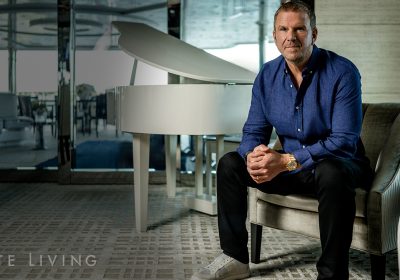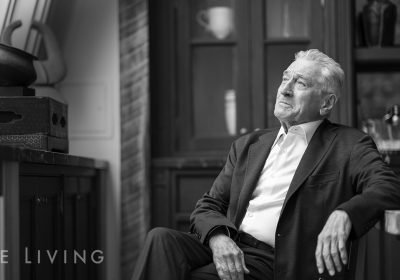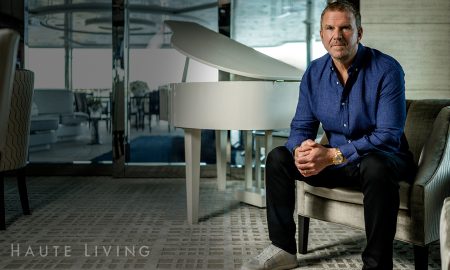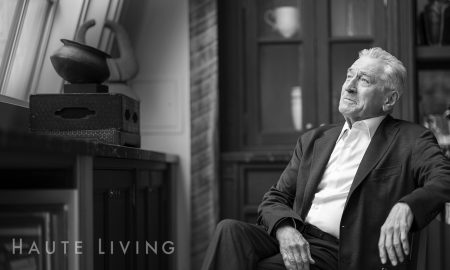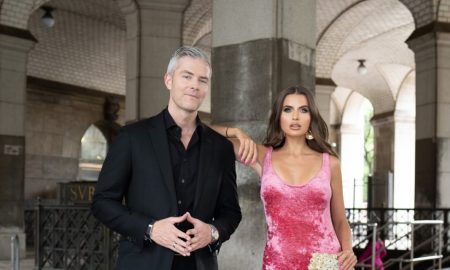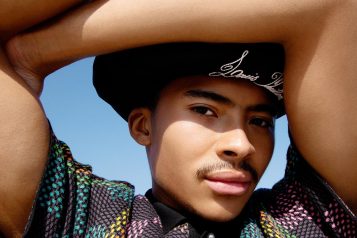Jones’ efforts don’t stop there; his personal Quincy Jones Foundation raises awareness and resources to support global children’s initiatives. The foundation recently received a $1 million contribution from Swiss watch company Audemars Piguet in recognition of Jones’ partnership with the brand as an ambassador. The collaboration is commemorated by the Millenary Quincy Jones Limited Edition timepiece. “It doesn’t get better than Audemars,” Jones says. “I chose to [be a brand ambassador] because of their spirit and attitude about my foundation.” For three years, Audemars Piguet has been presenting the Q Prize, which recognizes advocacy on behalf of children. In 2008, the Q Prize was awarded to Maestro Gustavo Dudamel and Dr. José Antonio Abreu, a 28-year-old conductor from Venezuela and his mentor, who started El Sistema 33 years ago in Venezuela. El Sistema now teaches music to 300,000 of the country’s poorest children. Jones says, “They save kids who are in gangs. They get them playing musical instruments, which is in following with my background. Music is something that sustains your life.”
The Saving Grace of the Marching Band
After Jones discovered music that fateful night in Washington, he says he began playing the piano all day, all night. By the time he was 12, he was studying trumpet and singing in a gospel quartet. Then he learned the French harp and joined the marching band, opting to play the trombone “because that’s up front, where all the girls were. Trumpets were all the way in the back.” That band took him out of Seattle and introduced him to the world. “We played all the nightclubs. We played with Ray Charles and Billie Holiday when I was 14. Then Lionel Hampton came through and wanted me to join. I was too young, I had to get back to school.” His musical acumen earned him a scholarship to Boston’s Berklee College of Music, quite the prestigious institution, but Quincy was consumed by the desire to get back into the scene, back to bebop and big bands.
When the chance to join Lionel Hampton’s band arose again, Jones seized the opportunity and left Berklee. “In a way, they were the first rock band, even though it was a jazz band. His attitude was rock ‘n’ roll….We played warehouses, and we had to play the segregated South, man, it blew my mind. Juke joints, and white and colored drinking fountains—all the bus stations, all the dances, were segregated. Amazing. Two-fifty for general admissions, white spectators paid a dollar and a half and they would sit up on the balcony. And lots of black people dancing. It was a social trip, man. In some states, when we’d get off work, there’d be no place to eat because it was all white restaurants. It just slapped all of us in the face at the time.”
But Jones didn’t get mad. Instead, he just kept on doing what he did, learning everything he could and changing the rules of the game along the way. “You start watching and learning. I was just totally addicted to arranging and composing. You look and learn, man. I could hear harmony in my head. That’s all I wanted to do—find out how do you organize your mind to make all of these different instruments play at the same time, doing all these different things. My favorite thing is organization and composing. Try to imagine all the songs in your head. When you think you’ve got it all figured out, you put it down on paper, and then the next day, that is the most emotional moment you can ever live through, the moment when you hear that music played back to you. It’s either as good as you thought it was, or sometimes it’s better if you got better musicians. It’s a journey that to this day still fascinates me, my favorite part. It’s my philosophy about how I look at the whole world: everybody does something different, but they’re doing the same thing for different reasons.”



